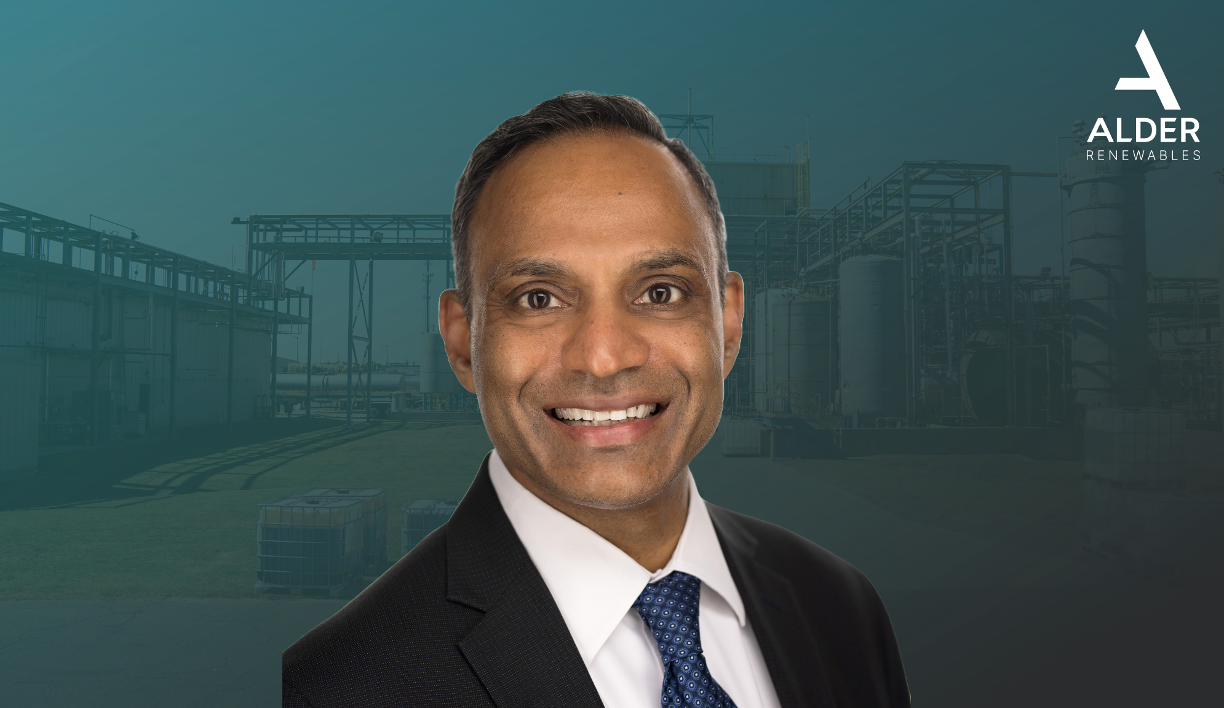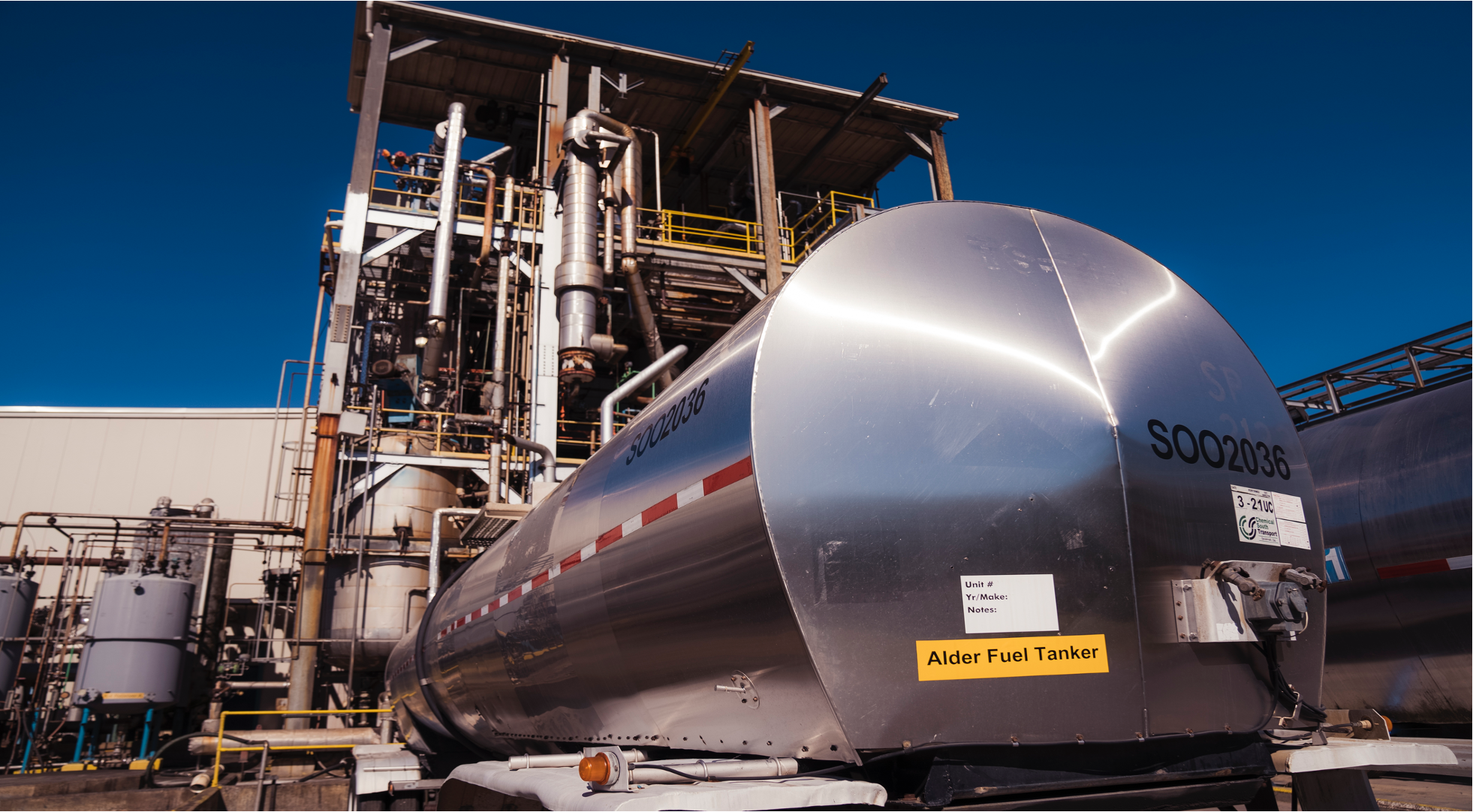Through a Joint Development Agreement with Quadrise, Alder is demonstrating Alder Pyrolytic Sugars (APS) as a renewable feedstock for advanced marine fuels. By combining our biomass conversion technology with Quadrise’s bioMSAR™ platform, the collaboration aims to deliver a scalable and cost-effective pathway to decarbonize the shipping industry—one of the hardest sectors to abate.
The global shipping industry is under increasing pressure to decarbonize, and practical, scalable solutions are urgently needed. At Alder Renewables, we believe our technology can play a vital role in this transition. That’s why we are proud to announce a new Joint Development Agreement (JDA) with Quadrise to accelerate progress toward cleaner marine fuels.
Our Technology, Their Platform
At the heart of this collaboration is our Alder Pyrolysis Sugars (APS), a renewable intermediate produced from sustainable biomass using our proprietary pyrolysis oil upgrading process. Through the JDA, APS will be evaluated as a feedstock for Quadrise’s bioMSAR™ and bioMSAR Zero™ fuels—advanced emulsion fuels designed as cleaner, lower-cost alternatives to heavy fuel oil in shipping.
By combining our biomass conversion expertise with Quadrise’s fuel technology, we aim to create a pathway to truly scalable, cost-effective low-carbon marine fuels.
A Clear Path to Demonstration
The agreement establishes a staged development plan:
Why It Matters
Looking Ahead
This JDA marks an important step forward in demonstrating the role Alder’s technology can play in marine decarbonization. Together with Quadrise, we are working to unlock a new, scalable route to sustainable shipping fuels—helping the industry move closer to its net-zero ambitions.
Building momentum with technology validation, strategic partnerships, and new projects

Neville Fernandes has joined Alder as President & Chief Operating Officer. He brings more than three decades of experience across renewable fuels, petroleum and chemical industries and is widely regarded for scaling innovative clean‑fuel businesses, developing new markets, and building relationships with investors, customers, suppliers, policymakers and stakeholders across the value chain.

Together with Boeing and Bioénergie AE Côte-Nord, we are launching Project Avance to produce SAF from sawmill residues in Port-Cartier, Québec. Boeing is investing CAD $10 million in the project as part of its Industrial and Technological Benefits commitment to Canada. The project will use Alder’s technology to produce Alder Renewable Crude (ARC) for hydrotreating into SAF and other hydrocarbon fuels.

With NREL and industry partners, Alder has demonstrated that Alder Renewable Crude (ARC) can be co-processed in a pilot Fluid Catalytic Cracking (FCC) unit to produce gasoline, jet, diesel, and marine fuels in high yield and high quality. The next steps under evaluation is commercial-scale FCC trials with industry partners, paving the way for rapid deployment of low-carbon fuels using existing refinery infrastructure.